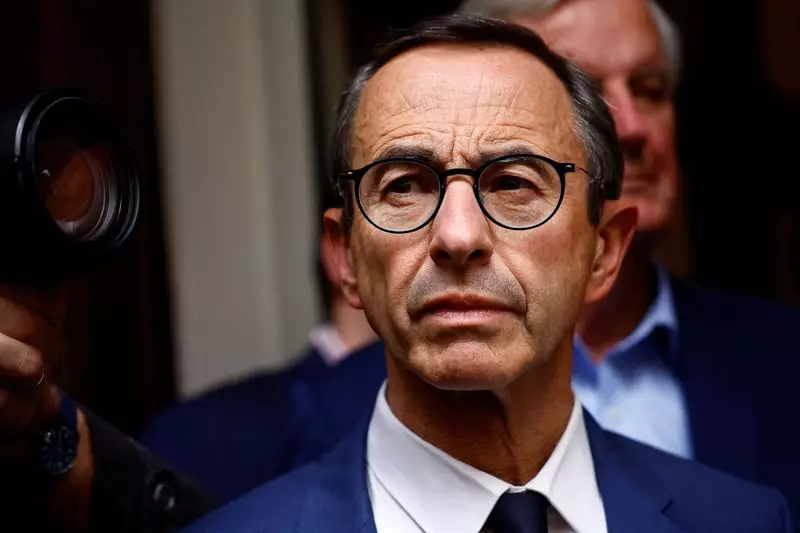The announcement of French President Emmanuel Macron’s new cabinet under Prime Minister Michel Barnier marks a significant moment in France’s political landscape. With strategic appointments that highlight both continuity and change, Macron is positioning his government to navigate complex challenges. This article delves into the implications of these appointments, the backgrounds of key figures, and the potential impact on France’s governance.
One of the most notable appointments is that of Antoine Armand as the Minister of Finance. At just 33 years old, Armand represents a generational shift in French politics. Elected to parliament in 2022, he quickly ascended within Macron’s centrist movement and now has the critical task of steering France’s economic strategy. Having trained at the renowned Ecole Nationale d’Administration, Armand’s background in finance is expected to bring a new perspective to the often intricate landscapes of economic management.
The Ministry of Economics and Finance, colloquially referred to as “Bercy,” is pivotal for France as it grapples with fiscal challenges. Armand’s collaboration with Laurent Saint-Martin, who will focus on budgetary issues, indicates a pragmatic approach toward tackling the nation’s budget deficit—a pressing issue that looms as the country considers necessary spending cuts and potential tax increases. This partnership will be crucial as they navigate economic pressures in an increasingly unstable global economy.
Another prominent appointment is Bruno Retailleau as Minister of the Interior, making him a key player in shaping France’s domestic policies. As a seasoned senator and a leading figure from the Republican party, Retailleau’s hard-right ideologies may polarize public opinion further, particularly regarding immigration and security measures. Notably, his push for stricter immigration laws reflects a broader trend within European politics, where conservative figures gain influence amid rising nationalist sentiments.
Retailleau’s advocacy for constitutional changes related to welfare benefits highlights a divergence in policy approaches within the government. As he challenges Macron’s more moderate stances, his role could spark contentious debates that test the unity of Barnier’s cabinet, particularly concerning issues that resonate deeply with voters, such as immigration, policing protests, and women’s rights.
Elevated to the position of Foreign Minister, Jean-Noel Barrot brings a wealth of experience from his previous roles, including serving as junior minister for European affairs. His appointment is significant not only due to his political lineage—being the son of a prominent past politician—but also because it emphasizes the need for a balanced government that appeals to various factions within the political spectrum. Barrot’s connections and background will likely aid in Franco-European relations at a time when cohesive diplomatic strategies are crucial, particularly with pressing global issues at hand.
Haddad’s appointment as Europe Minister underscores France’s commitment to its role within the European Union and its relationships with external powers. His experience in Washington, D.C., paired with fluency in English, places him in a strategic position to strengthen Franco-American relations, especially concerning current geopolitical tensions, including those arising from the war in Ukraine. His proactive moves, such as rallying European lawmakers to advocate for U.S. support for Ukraine, position him as a vital asset in foreign policy discussions.
Retaining Sebastien Lecornu in his role as Defence Minister signals a desire for consistency in France’s military strategies. Lecornu’s loyalty to Macron since 2017 reinforces a sense of stability in defence policymaking, allowing the government to build on previous initiatives while adapting to new security challenges. His experience will be invaluable as France reconsiders its military commitments, both domestically and internationally.
The new cabinet under Prime Minister Michel Barnier reflects a strategic blend of new perspectives and established political figures. As these ministers embark on their respective roles, the underlying challenges of economic management, national security, and international diplomacy will require deft handling. The dynamics within the Cabinet are set to evolve as each minister asserts their influence, fostering a government tasked with balancing progressive agendas with conservative realities. With each appointment, Macron aims to reflect his vision while confronting an increasingly polarized political atmosphere, indicating that the journey ahead will be anything but straightforward.

